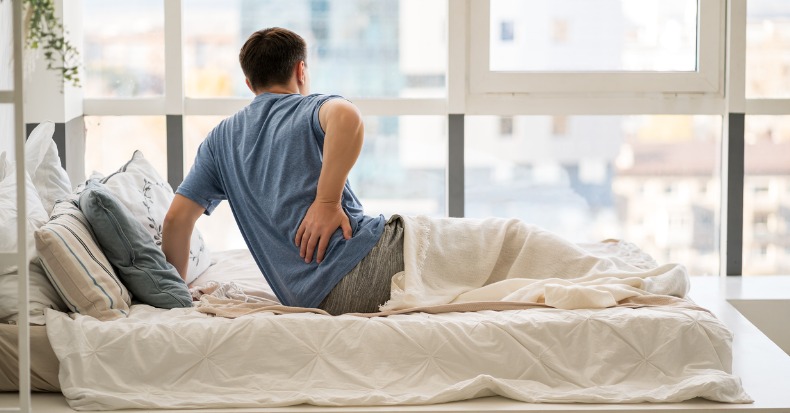When a patient seeks chiropractic care to address acute back pain, the cause is usually musculoskeletal in origin. However, if changing body positions (leaning forward or back or turning to the side, etc.) has no effect on pain levels, there’s a possibility the underlying cause of their sudden back pain may be a kidney stone. Let’s discuss kidney stone causes and prevention.
Kidney stones (technically called renal calculi, nephrolithiasis, or urolithiasis) are hard deposits made of minerals and salts that form inside the kidneys, and they affect about 9% of citizens in Western nations. There are several risk factors associated with kidney stones such as a family or personal history of prior stones; dehydration (think dry/hot climates; excessive sweating); a high-protein diet (like the Dukan diet); excessive sodium (salt) and sugar; digestive diseases (chronic diarrhea, gastric bypass); a medical condition like renal tubular acidosis, cystinuria, hyperparathyroidism, repeated urinary tract infections, and more; certain supplements and medications such as vitamin C, dietary supplements, laxatives (excessive use), calcium-based antacids, certain migraine medications, depression medications, and more.
When stones form in the kidney, they can vary significantly in size. Generally, only the smaller stones pass, and when this happens, it can be quite painful. The “good” news is that most of time, there is no permanent damage. In the event of passing a stone, it’s important to keep it for analysis as it will reveal the underlying cause. Identifying the cause can help reduce the risk of recurrence, which can be as high as 50% within five years!
If a stone becomes lodged, the diagnosis must be made in a timely fashion to avoid damage. Depending on the situation, you may need nothing more than pain medication and a lot of water, but if the pain does not subside, a urinary tract infection or other complications can arise that may require surgery.
The authors of a 2022 study noted that kidney stones should be viewed as a systemic disorder, associated with or predictive of hypertension, insulin resistance, chronic kidney disease (CKD), and cardiovascular damage (CD). They HIGHLY recommended screening kidney stone patients for both CKD and CD (stating that this is infrequently done). They emphasized that each patient be given a patient-tailored plan based on the clinical and lab/biochemistry evaluation results and AVOID giving excessive dietary restrictions especially if not based on a specific diagnosis to prevent potentially useless or even harmful results.
The good news is that by living a healthy lifestyle and avoiding the risk factors listed above, you can reduce the risk for a kidney stone.



